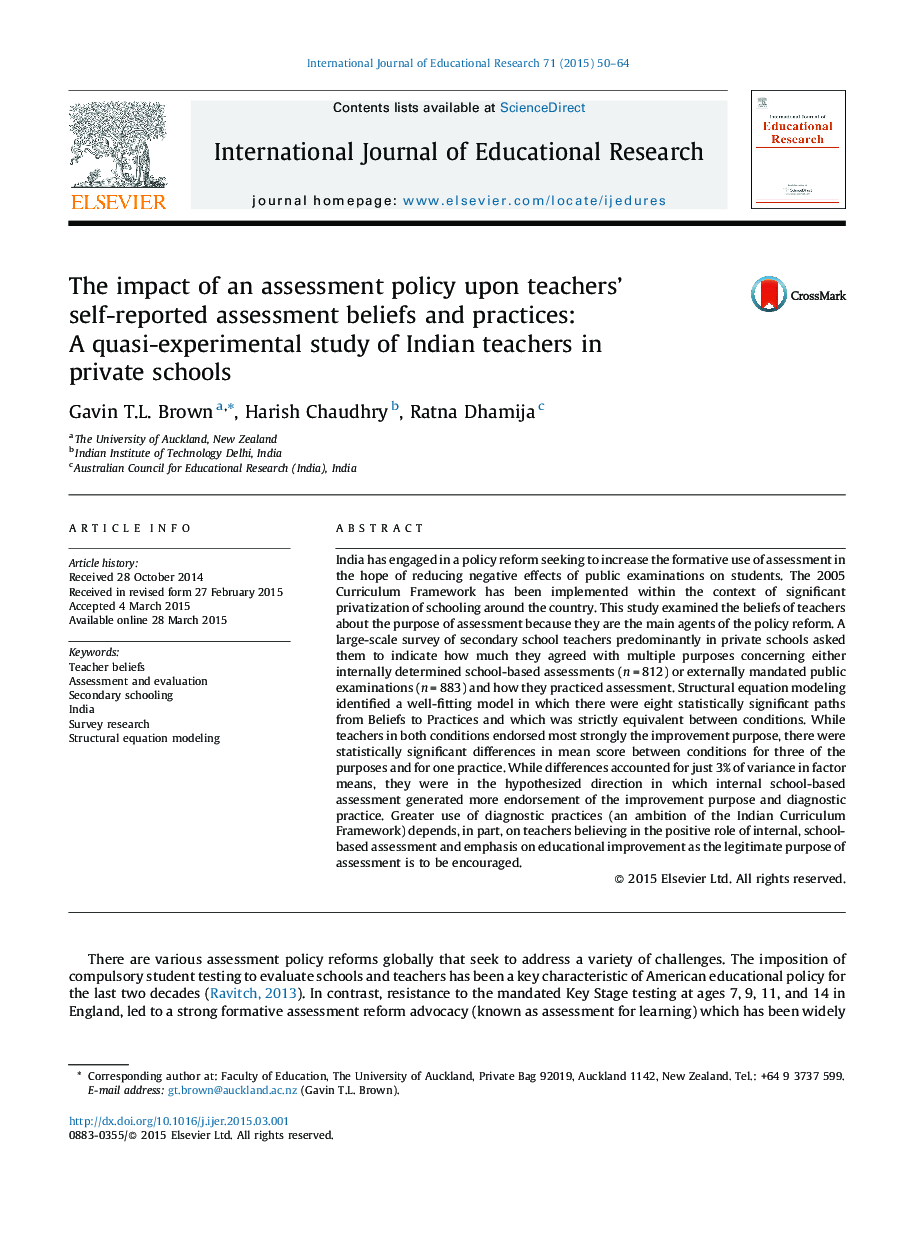| Article ID | Journal | Published Year | Pages | File Type |
|---|---|---|---|---|
| 356910 | International Journal of Educational Research | 2015 | 15 Pages |
•India's 2005 Curriculum Framework aims to increase the formative use of assessment.•Beliefs and practices of secondary school teachers about assessment were surveyed.•Two conditions were set: internal school assessment vs. external public examinations.•SEM model of Beliefs to Practices was strictly equivalent between conditions.•Improvement and diagnostic factors had higher means in school-based condition.
India has engaged in a policy reform seeking to increase the formative use of assessment in the hope of reducing negative effects of public examinations on students. The 2005 Curriculum Framework has been implemented within the context of significant privatization of schooling around the country. This study examined the beliefs of teachers about the purpose of assessment because they are the main agents of the policy reform. A large-scale survey of secondary school teachers predominantly in private schools asked them to indicate how much they agreed with multiple purposes concerning either internally determined school-based assessments (n = 812) or externally mandated public examinations (n = 883) and how they practiced assessment. Structural equation modeling identified a well-fitting model in which there were eight statistically significant paths from Beliefs to Practices and which was strictly equivalent between conditions. While teachers in both conditions endorsed most strongly the improvement purpose, there were statistically significant differences in mean score between conditions for three of the purposes and for one practice. While differences accounted for just 3% of variance in factor means, they were in the hypothesized direction in which internal school-based assessment generated more endorsement of the improvement purpose and diagnostic practice. Greater use of diagnostic practices (an ambition of the Indian Curriculum Framework) depends, in part, on teachers believing in the positive role of internal, school-based assessment and emphasis on educational improvement as the legitimate purpose of assessment is to be encouraged.
